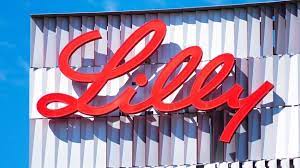
The pharma giant Eli Lilly raised its earnings outlook for 2022 compared to estimates by Wall Street, as the company cited business growth because of approvals for new medicines which it expects to offset the impact of competition and pricing pressures on its other major therapies.
This optimistic outlook pushed the share price of the company by almost 10 per cent.
The company also talked about its plans for launching of five more medications within the next two years. This new range of medicines will include the diabetes drug tirzepatide and the Alzheimer's disease therapy donanemab. This will also help the company to fulfil its 10-year goal of launching 20 new medicines by 2023, Lilly said.
"We believe the continued uptake of our key growth products ... coupled with our anticipated upcoming launches will allow Lilly to deliver top-tier, volume-driven revenue growth through at least 2030," Lilly CFO Anat Ashkenazi said.
Lilly also increased its earnings and sales forecasts for the current fiscal year. it said that this raise was partly because of a recent US government deal for the supply of its Covid-19 antibody treatment.
614,000 more doses of Covid-19 antibody treatment were purchased by the US government in a deal worth $1.29 billion last month. The Covid-19 treatment is a combination of bamlanivimab and etesevimab medicines of the company.
The company also said that it expected to generate sale revenues of around $2.1 billion for the full year of 2021 from its Covid-19 medicines. This forecast was higher than the previous projection of the company of revenues of $1.3 billion for 2021.
The company also forecast that its profits in 2022 will be in the range of between $8.50 and $8.65 per share which is also higher than its previous forecast of $8.18 per share.
Third Bridge senior analyst Mikaela Franceschina said in an emailed statement that Lilly has a "exciting future," as the company expects that its medications - both donanemab and tirzepatide, are likely to be approved next year.
"Donanemab has been keenly watched since the controversy around Biogen's Aduhelm. Our experts say donanemab could theoretically benefit a larger patient population than Aduhelm and pose a substantial threat to Aduhelm's future."
Aduhelm, which was licenced in June to treat Alzheimer's disease, is seeing delayed traction, with experts questioning the FDA's logic for approving the treatment without more conclusive proof of efficacy.
(Source:www.usnews.com)
This optimistic outlook pushed the share price of the company by almost 10 per cent.
The company also talked about its plans for launching of five more medications within the next two years. This new range of medicines will include the diabetes drug tirzepatide and the Alzheimer's disease therapy donanemab. This will also help the company to fulfil its 10-year goal of launching 20 new medicines by 2023, Lilly said.
"We believe the continued uptake of our key growth products ... coupled with our anticipated upcoming launches will allow Lilly to deliver top-tier, volume-driven revenue growth through at least 2030," Lilly CFO Anat Ashkenazi said.
Lilly also increased its earnings and sales forecasts for the current fiscal year. it said that this raise was partly because of a recent US government deal for the supply of its Covid-19 antibody treatment.
614,000 more doses of Covid-19 antibody treatment were purchased by the US government in a deal worth $1.29 billion last month. The Covid-19 treatment is a combination of bamlanivimab and etesevimab medicines of the company.
The company also said that it expected to generate sale revenues of around $2.1 billion for the full year of 2021 from its Covid-19 medicines. This forecast was higher than the previous projection of the company of revenues of $1.3 billion for 2021.
The company also forecast that its profits in 2022 will be in the range of between $8.50 and $8.65 per share which is also higher than its previous forecast of $8.18 per share.
Third Bridge senior analyst Mikaela Franceschina said in an emailed statement that Lilly has a "exciting future," as the company expects that its medications - both donanemab and tirzepatide, are likely to be approved next year.
"Donanemab has been keenly watched since the controversy around Biogen's Aduhelm. Our experts say donanemab could theoretically benefit a larger patient population than Aduhelm and pose a substantial threat to Aduhelm's future."
Aduhelm, which was licenced in June to treat Alzheimer's disease, is seeing delayed traction, with experts questioning the FDA's logic for approving the treatment without more conclusive proof of efficacy.
(Source:www.usnews.com)














